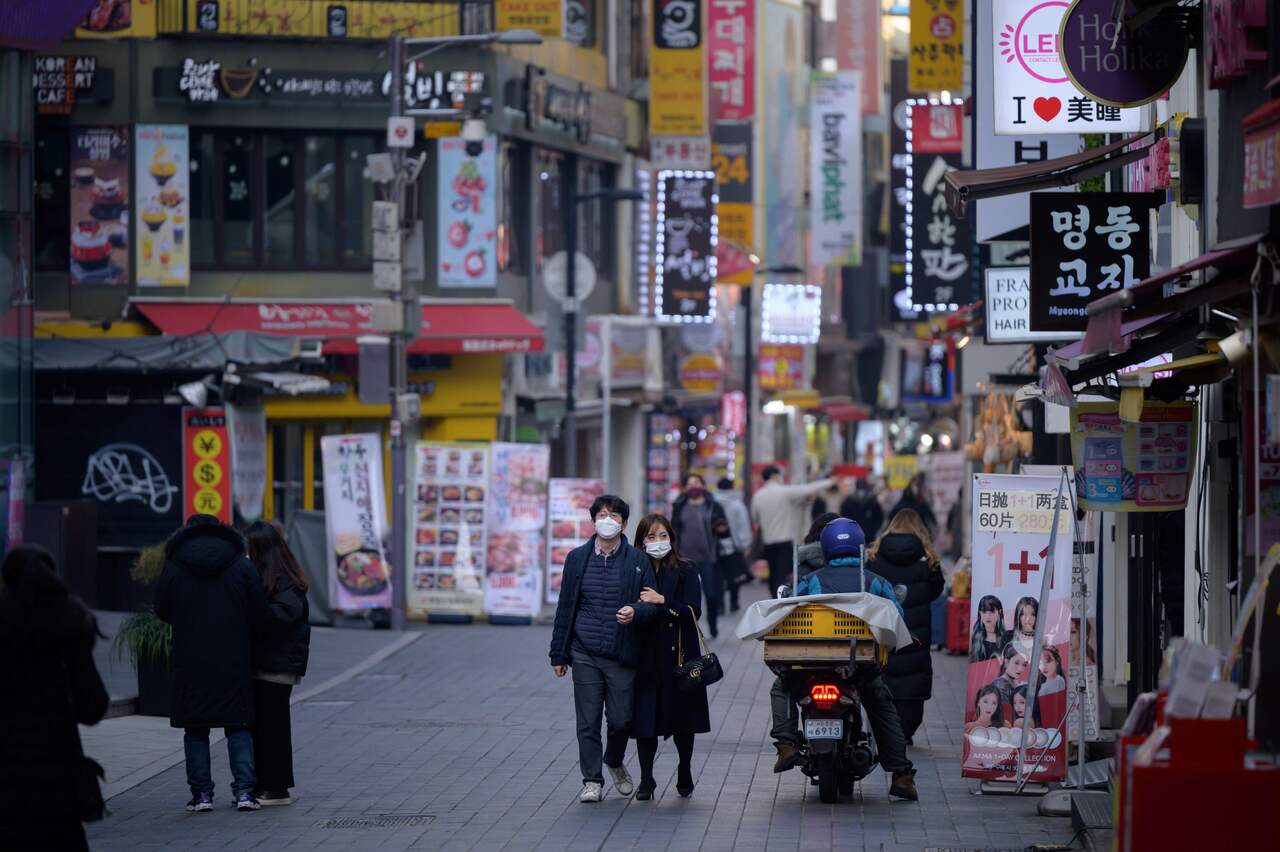Most Asia-Pac economies should hit pre-pandemic levels in 2021: Moody's Analytics
Sign up now: Get ST's newsletters delivered to your inbox

Already, the Asia-Pacific region's gross domestic product has edged above its pre-pandemic peak in the final quarter of 2020.
PHOTO: AFP
Gayle Goh
Follow topic:
SINGAPORE (THE BUSINESS TIMES) - The Asia-Pacific region continues to lead global growth, with all economies tipped to rebound this year, according to a Moody's Analytics report.
In addition, all Asia-Pacific economies - except the Philippines, Thailand and Malaysia - are expected to recover past their pre-pandemic levels by end-2021.
Already, the Asia-Pacific region's gross domestic product (GDP) has edged above its pre-pandemic peak in the final quarter of 2020.
Pack leaders China, New Zealand, Taiwan and Vietnam are now expanding, with real GDPs having surpassed pre-pandemic (fourth quarter 2019) levels. India's GDP is also marginally above its pre-pandemic peak. Of the remaining economies, most are within two to three percentage points of achieving a new peak in GDP.
All Asia-Pacific economies are anticipated to record growth in 2021. As at March 11, Moody's Analytics forecasts India to record the strongest growth of 12 per cent, followed by China (8.3 per cent) and Vietnam (7.5 per cent).
New Zealand, the Philippines, Taiwan, Singapore, Indonesia and Hong Kong are forecast to grow by about 5 per cent to 6 per cent. The remainder - Malaysia, Australia, South Korea, Japan and Thailand - are expected to grow by about 3 per cent to 4 per cent.
In the second half of the year, the region is expected to be supported by increased immunity and less social distancing, together with the emergence of North America and Europe from Covid-19 restrictions, which will drive global spending. A recovery in international trade, supportive fiscal policies, and measures to manage Covid-19 are other factors working in the Asia-Pacific region's favour.
Globally, aggregate merchandise trade and industrial production made a full recovery in December, the report noted. Throughout North Asia and much of South-east Asia, exports are now above pre-Covid-19 levels. Rising prices for crude oil, palm oil and other commodities are also contributing to the rising value of exports for commodities producers like Indonesia and Malaysia.
On the fiscal end, Asia-Pacific economies like Malaysia, Singapore, Japan and Australia have continued to provide modest stimulus in 2021, via targeted deficit spending, following aggressive policies last year. These countries provided more sizeable fiscal responses in 2020, measured as a percentage of GDP, compared with large economies like Canada, France, Germany, Italy and Brazil.
The pace of vaccinations is also expected to boost the region's economy in the second half of the year. The report identified only the Philippines and Thailand to be lagging in their procurement of vaccines, though its forecast assumes they will acquire the vaccines needed, as the number of sources expands.
On balance, only Thailand, Malaysia and the Philippines are expected to take till next year for real GDP to grow past pre-pandemic levels. Thailand is forecast to reach that milestone in the first quarter of 2022, followed by Malaysia in the second quarter, and the Philippines in the third.
Thailand's high exposure to travel and tourism is expected to continue hobbling its recovery for some time. Malaysia also depends heavily on tourism, and its economy ground nearly to a halt in the fourth quarter of last year because of movement control orders.
Hardest hit of all could be the Philippines. Its real GDP saw the steepest plunge in 2020 out of all the Asia-Pacific economies, shrinking by more than 9 per cent. Quarantine orders restricted mobility for much of last year. Its fiscal response was limited, and it has not yet developed an effective system for delivering vaccinations across the archipelago, added the report. Herd immunity may not be achieved until 2023.
"At this point in economic recovery, the risks to the outlook are increasingly balanced on the upside and downside of our baseline forecast," concluded Mr Steven Cochrane, chief Asia-Pacific economist at Moody's Analytics, on the region's prospects as a whole.
He added: "The downside risks related to Covid-19 are easing as vaccines are distributed, despite the numerous roadblocks standing in the way of rapid vaccination programmes.
"And the passage of the latest stimulus programme in the US, combined with the nation's accelerating pace of vaccination, creates additional upside potential for the outlook for the global economy."

